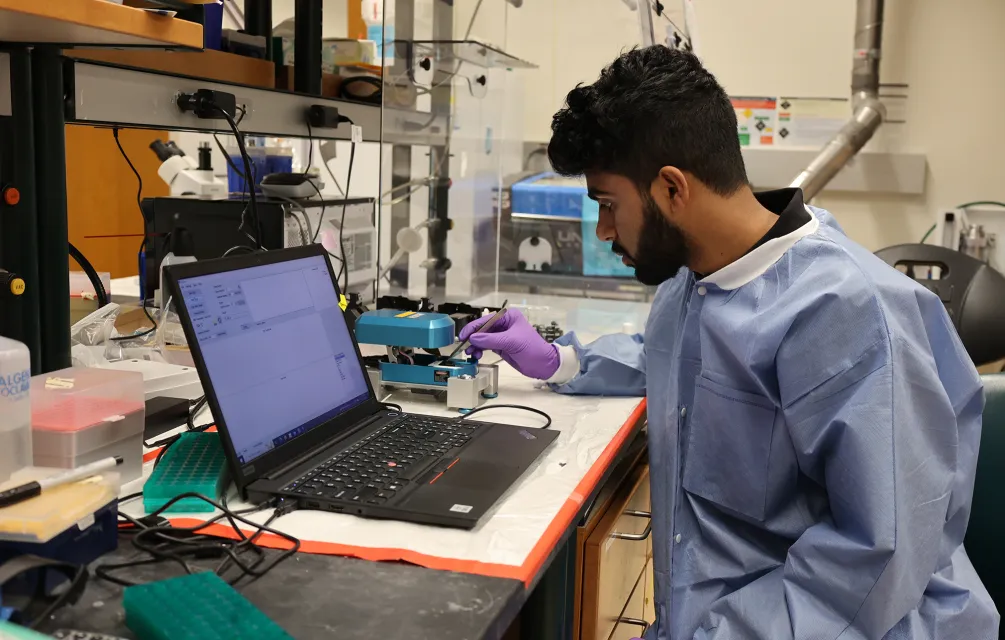Undergraduate Study
Biomedical Engineering

Empowering Students to Transform Healthcare
At Yale, Biomedical Engineering stands at the forefront of innovation, blending the expertise and cutting-edge research of the School of Engineering & Applied Science and the School of Medicine. This unique interdisciplinary approach creates an unparalleled environment for students passionate about engineering solutions to healthcare challenges.
Biomedical Engineering at Yale has exciting opportunities and advanced facilities for student research projects in these areas.
Our Mission
To educate students and to engage in research in biomedical imaging, biomechanics, systems biology and biomolecular engineering.
Our Goal
To advance knowledge in these important areas, designing biomedical engineering technologies that further our understanding of human physiology, improve health care and ultimately bring these advances into clinical practice.
Curriculum
Yale's Biomedical Engineering department provides a curriculum that balances theoretical knowledge with hands-on experience.
Core courses cover essential topics such as:
- Physiological Systems
- Biocomputation
- Biomechanics
- Biosignals
- Biotransport
These topics provide a solid grounding in the fundamentals of the field.
Empowering Students with Hands-On Research
Students have the opportunity to engage in practical, impactful research from day one. The year-long laboratory sequence introduces students to a wide array of quantitative techniques, preparing them for independent research projects. As early as their first year, students can engage in semester-long Special Projects, working alongside faculty to address real-world healthcare challenges.
In addition, students will take at least three courses in a particular track:
- Biomedical Imaging
- Biomechanics
- Systems Biology
- Biomolecular Engineering
In addition to these courses, students will also engage in a Senior Seminar to give them a broader perspective of the field.
Senior Projects that Tackle Real-World Challenges
Finally, as part of their Senior Project, Biomedical Engineering students select from research projects to address a range of important problems with an impact on human health.
Past projects include:
Developing machine learning approaches for disease diagnostics
Designing devices for improved surgical interventions
Exploring stem cell therapies for neurological disorders
This capstone experience not only solidifies students' skills but also provides a launching pad for future careers or advanced studies.
This is an exciting time for biomedical engineers at Yale. The department provides unique training for engineers at the interface of biological and physical sciences, fostering a superb, interactive, and inclusive environment for exploration and discovery. As the field continues to evolve, Yale's Biomedical Engineering department remains committed to developing technology that enhances human health while striving to reduce healthcare costs and improve healthcare equity.
